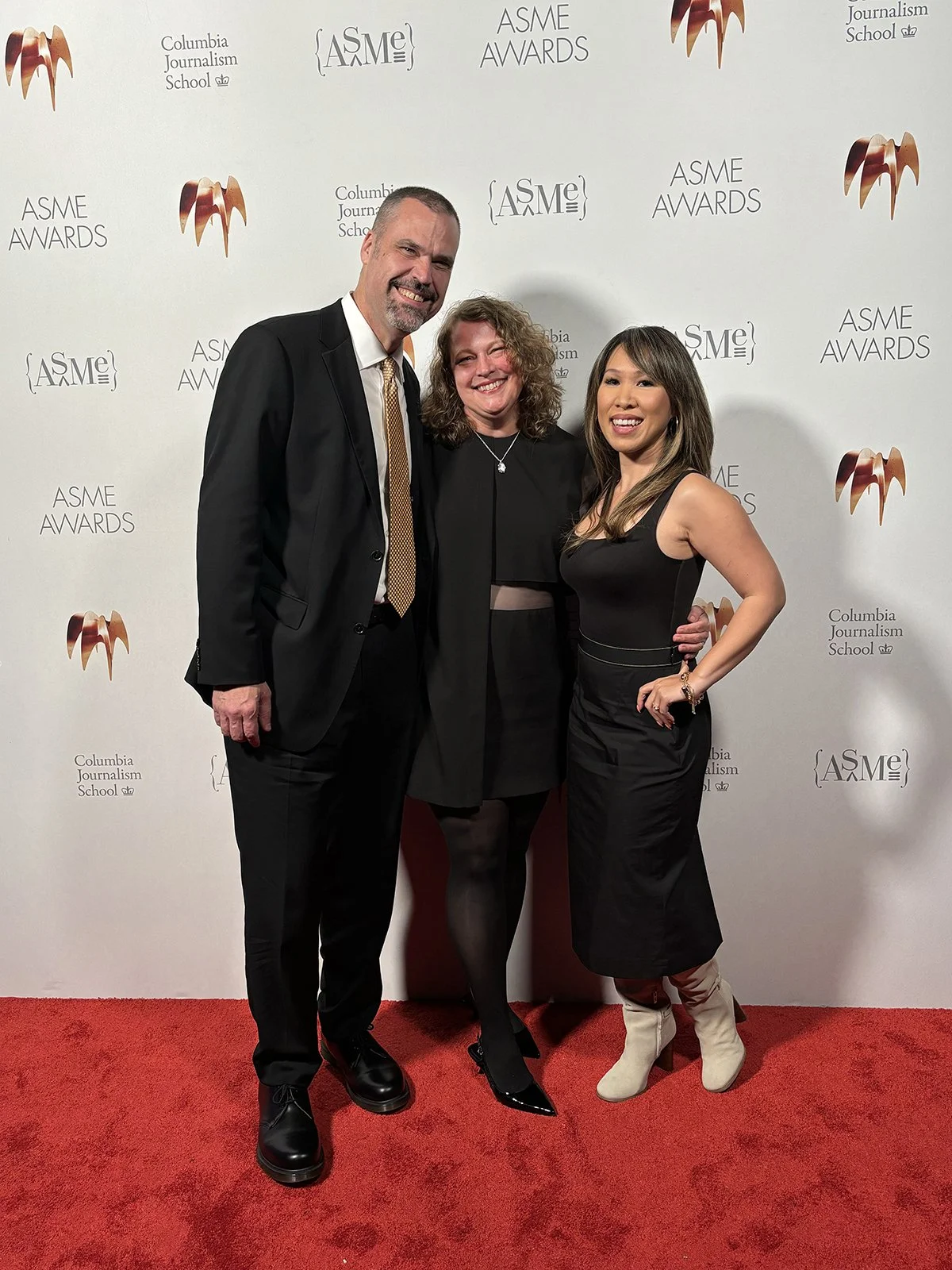Mary Anne Andrei has produced more than two dozen episodes of our podcast, short films and social media videos, and a radio play. We have also played host, largely under Mary Anne’s management, to the Switchyard Festival (featuring Art Spiegelman, Natasha Trethewey, Maia Kobabe, Ilya Kaminsky, and others), Food Fest (featuring Tom Colicchio, Sean Sherman, Jori Lewis, and Siddhartha Deb), Switchyard at Mayfest (featuring Bill McKibben, Timothy Egan, Andrea von Kampen, and many others), and more intimate events featuring Sterlin Harjo, Carl Phillips, Ted Conover, George Black, Anne Nelson, Elliott Woods, and others. Mary Anne also supervised the creation of two exhibits—one, telling the history of Route 66; the other, spotlighting the art and writing of women inmates in Oklahoma’s prisons—in collaboration with the Oklahoma Center for Humanities.
Through partnerships with the Food & Environment Reporting Network, the Johns Hopkins Center for a Livable Future, and the Economic Hardship Reporting Project, we have reached larger audiences beyond our own community. We have been featured on the Ali Velshi Show on MSNBC, on NPR’s All Things Considered, and in the pages of The Chronicle of Higher Education. In fact, Kevin Dettmar, writing for the Chronicle, delivered high praise to Switchyard on our launch. “Switchyard’s platforms appear ready to embrace the historical role of the university as truthteller,” he wrote. “Whatever topics the magazine, podcast, and festival decide to feature in coming iterations, one can only hope that they will be as courageous and timely as the conversations they’ve tackled in their auspicious inaugural year.” I regret that those conversations were not allowed to continue longer.
It has been an honor to work with Taylor Le, Rebecca Bauer, Charles Lipper, Kais Ali, Kyle Bell, Mike Prado, Gary Laney, Teresa Knox, Ronnie Carlson, Autumn Worten, and all the amazingly gifted writers, artists, and multimedia producers who have contributed their time, energy, and talent to this shared effort. Special thanks to Brad Carson. We did cool stuff.
Before Mary Anne and I moved to Tulsa—or had ever been here—we reported together on immigrant groups in the meatpacking industry across the middle of the country. In Nebraska, one son of Sudanese immigrants told me he had been reading The Outsiders (the quintessential Tulsa novel) in his high school class and had found himself suddenly crying uncontrollably. I asked if he had sometimes felt like an outsider himself. No, he insisted. It was the larger human story that got him. He had never felt anything but at home in the United States.
I think I speak for Mary Anne and myself both when I say that we have never felt like outsiders in Tulsa. Stay gold. —Ted Genoways


